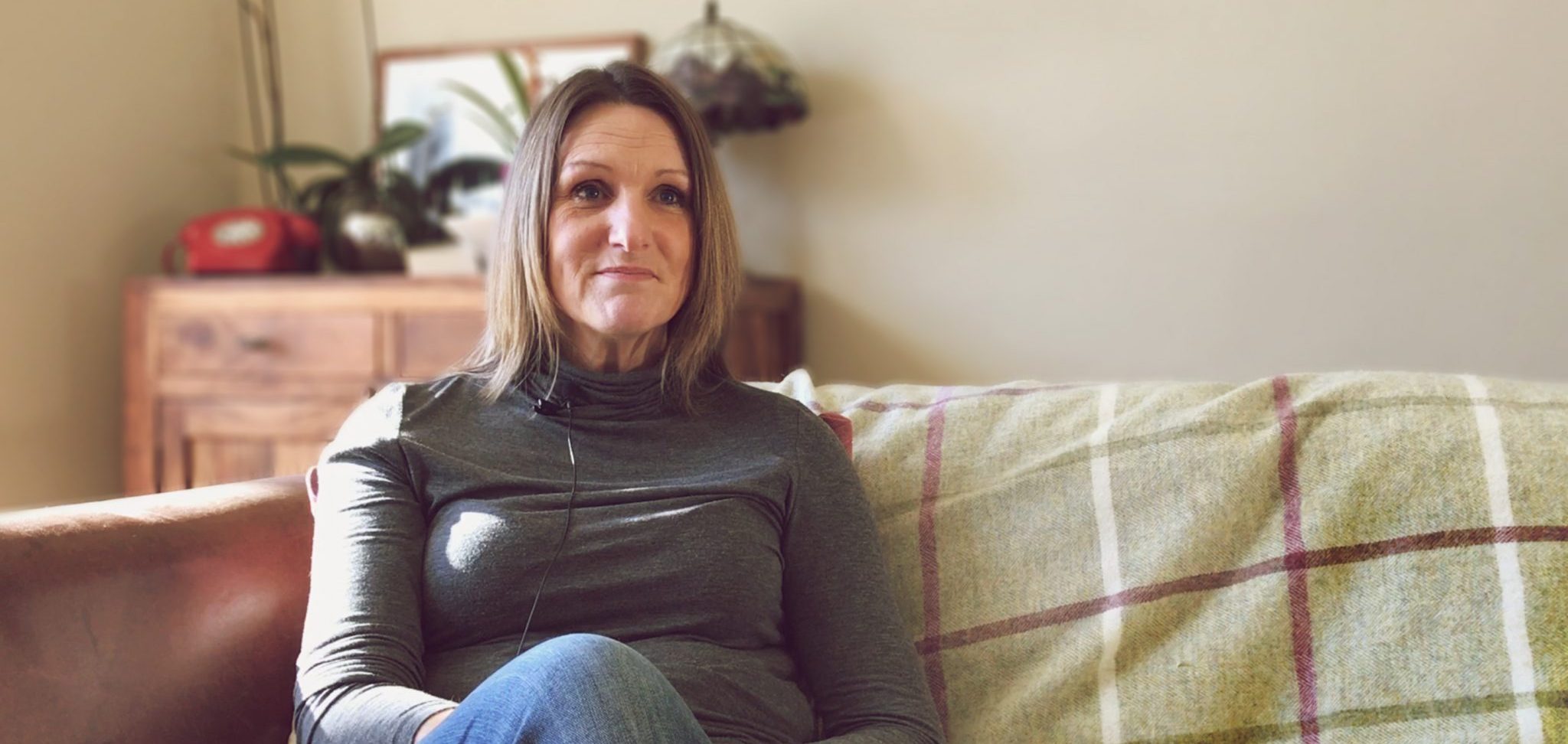
In her films, Judy relives the traumatic events when Gregor had his OHCA and her thoughts as she tried to resuscitate him, and on his pre-hospital care. She talks about what it was like for the family when Gregor was in hospital and her uncertainty about what the future might hold. Gregor’s OHCA put a huge strain on Judy and she shares the physical and psychological impact that this had on her, as an individual. She tells us about how life was for the family when Gregor first came home and how it is now, including their involvement in work to highlight the importance of learning CPR.
In her film, Judy tells us what happened when her husband, Gregor had an OHCA arrest at home. Her husband had always been very fit and healthy, so his unexpected collapse came as a complete shock to the family. Judy had to perform CPR on her husband and, even though she is a highly trained and experienced nurse, she found this very daunting. She was very aware of the danger of Gregor having brain damage if his brain was deprived of oxygen for too long. Lay responders helped Judy resuscitate Gregor until the first responder and then the paramedics arrived. Gregor required defibrillation before regaining consciousness. While this was happening, Judy was very aware of how distressed her two children were. Judy and her family live some distance away from the nearest cardiac unit and she had to endure a long journey in the back of the ambulance with Gregor before they arrived at the hospital. Even once Gregor was safely in the Coronary Care Unit, Judy was worried about whether he would re-arrest.
Judy talks about what it was like when Gregor was in hospital. He had investigations which showed that he had a cardiac condition known as cardiomyopathy. It was agreed that he would have an implantable cardioverter defibrillator (ICD) put in place. Although the couple and, especially, the children were reassured by this, Judy found the week waiting until this happened very stressful. At home, there were upsetting visual reminders of what had happened the evening that Gregor had his arrest. Judy tried to keep things as normal as possible for the children and the fact that there were lots of family and friends around to talk to was a help to her. Cardiomyopathy can be inherited and this had implications for Gregor’s children and for his siblings. Gregor and his siblings had genetic screening carried out following his diagnosis and the children have both chosen to be tested when they are sixteen.
In this film, Judy reflects on what life was like once Gregor came home. Despite Gregor having an ICD fitted, there was still a fear that he might have another OHCA and of what the consequences of that might be for the family. The ICD itself came with issues around wound healing, fear of dislodging and of physical activity. There were also changes in family roles. Whilst mentally Gregor tried to get back to normal, physically this was not immediately possible and he still experienced symptoms such as breathlessness and fatigue. Judy became the main car driver in the family. Having had a cardiac arrest and being diagnosed with a cardiac condition meant practical changes in life insurance and travel insurance. Judy found this time of change challenging and she admits that there were a lot of tears at this stage. The family became involved in fund-raising and in raising awareness of the importance of CPR, as they realised that without good CPR the outcome for Gregor and the whole family might have been very different. Judy’s own physical and mental health suffered as a result of Gregor’s OHCA. She had physical symptoms such as hair loss and joint problems. Anxiety was a major problem for her and, looking back, she feels that she probably suffered from post-traumatic stress disorder.
Defbrillators
Brain Injuries
Inherited Conditions
Mental Health & Wellbeing
Support for Carers
Relaxation
Post Traumatic Stress Disorder
Please answer each of the following questions. All results are completely anonymous and used for quality assurance purposes only.